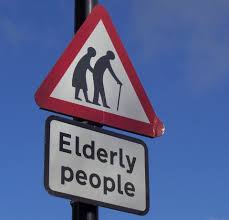Meaningful activity has huge benefits for residents living with dementia
and should be integral to daily care home life. Yet if the individual is not
engaged in some way, they can experience anxiety, aggression, agitation or
apathy.
Around 20 care homes in the UK and more than 500 in Holland have
recently installed Active Cues’ Tovertafel (also known as the Magic Table) to
challenge residents with mid- to late-stage dementia to be more active both in
body and in mind.
By means of a projector and infrared sensors, light animations are shone
onto a table which residents can interact with.
John Ramsay introduced Tovertafel to the UK this year, following his
retirement as a corporate lawyer. He said: “I became involved with Tovertafel
as my father (formerly a consultant orthodontist) was diagnosed with dementia
when I was 12. I cared for him for ten years.
"I have witnessed the reality of how hard it can be to interact
with someone living with dementia, and cannot believe the effect Tovertafel has
on the quality of life and day-to-day activities of those living with the condition.
I only wish it had been around when my dad was still alive."
Research published in the National Center for Biotechnology Information
(NCBI) suggests that older people with dementia can often remain passive
throughout the day, as they have little or no interaction with their immediate
surroundings.
This, according to Mr Ramsay, "can be very worrying because apathy
accelerates the deterioration of physical, mental and emotional wellbeing.
Muscles can become stiff, individuals can get bored or even depressed, and
cognitive ability can deteriorate."
Passive behaviours are among the most common symptoms of dementia and
are characterised by fewer displays of emotion, withdrawal from interactions
with others and surroundings, and a decrease in motor activity.
Residents who are withdrawn are therefore vulnerable to the effects of
isolation and inactivity and are at high risk for further cognitive and
functional decline.
The International Journal of Design published a study which found that
playing interactive games such as Tovertafel can slow down the deterioration
of, or can improve memory, hand-eye coordination, reaction times and
self-esteem.
Tovertafel has been designed to promote physical movement, conversations
and reminiscence through a series of interactive games. These include: sayings
and rhymes, little fish, fluttering butterflies, autumn leaves and beach ball.
eek to 10%, 20% … 60%
"We believe that everyone has the right to play," said Mr
Ramsay. "Whether young or old, male or female, living with a disability,
suffering a short or long-term illness or in recovery, playing is much more
than just having fun; it is paramount for the individual’s mental, physical,
and emotional wellbeing.
"The moments that give you goosebumps are endless especially when
you see grandchildren interacting with their grandparents when previously they
were unable to play together."
Margaret House was one of
the first care homes in Hertfordshire to install the 'magic table' for its
residents, staff and visiting friends and families.
Established in 1971, the independent, family-run care home offers long
stay residential and dementia care, as well as respite or holiday breaks.
Proprietor Gail Kelly, said: "As soon as we saw the Tovertafel
being demonstrated, we knew that we had to get one and are very pleased that we
did. It offers such a different way for people with dementia to get both
pleasure and physical activity and complements the other activities that we
provide."
Care home manager Julie Greaves, added: "It is already very popular
as it is multigenerational, with both staff and relatives of all ages being
able to take part. It really allows people with dementia to come together to
share an activity that brings a smile to everyone's face, with the range of
different games and the levels within them, making them accessible for many
residents."
Tovertafel consists of a box which is suspended from the ceiling,
containing a high-quality projector, infrared sensors, a speaker, a processor,
a memory card and a Wi-Fi antenna. It detects any hand and arm movement,
controls the games and projects the interactive light animations onto any table
surface, colour or material. The structure has been developed this way to avoid
making participants feel uneasy.
The 'magic table' can be connected to the internet, whereby software
updates and new games can be updated by care homes.
Tovertafel was developed at the faculty of Industrial Design Engineering
of Delft University of Technology and in collaboration with the department of
Clinical Neuropsychology of the VU University of Amsterdam.
"Our founder, Hester Le Riche, created Tovertafel as part of her
PhD research in the Netherlands with the primary goal to decrease the passivity
of people living with dementia by developing a product that stimulates them in
both physical activity and social interaction," said Mr Ramsay. "She
wanted to design a playful platform (or game) to accomplish these behavioural
challenges as well as adding joy to their day-to-day life."
The cost of a Tovertafel is around £5,500 (exclusive of VAT) which
includes eight original games, free installation, training and a three-year
service.
Ms Le Riche and Mr Ramsay have recently launched a version of Tovertafel
for people with learning disabilities, where the games are more intense and
directly educational. Next year there will also be a set of games for children
living with Autism Spectrum Disorder (ASD).
SOURCE:carehome.co.uk, Melissa McAlees



























